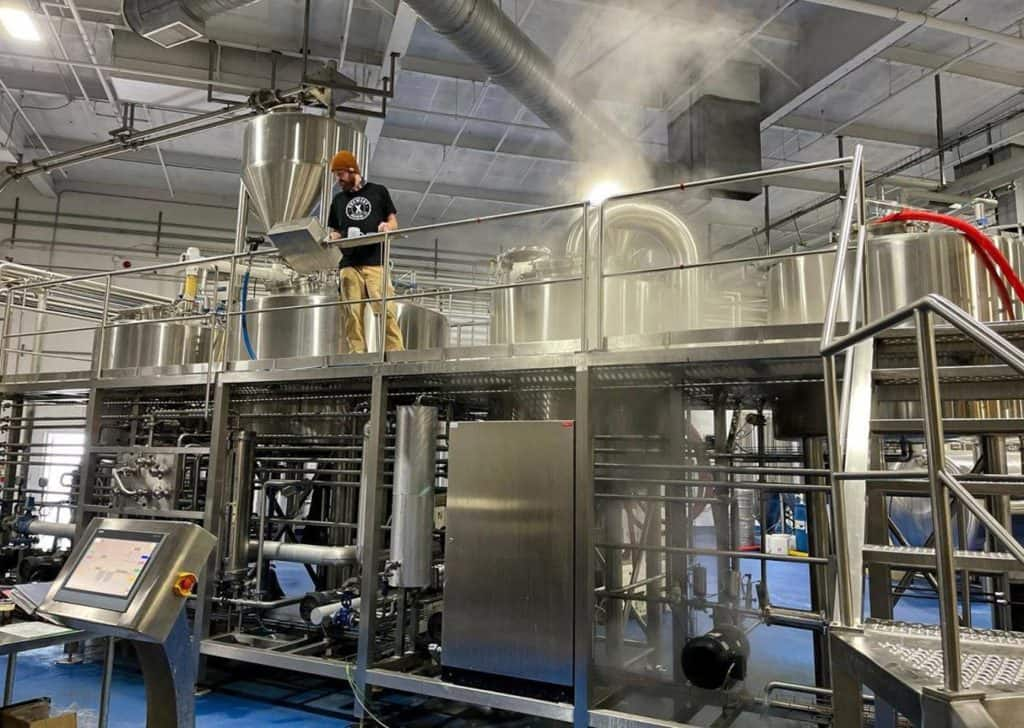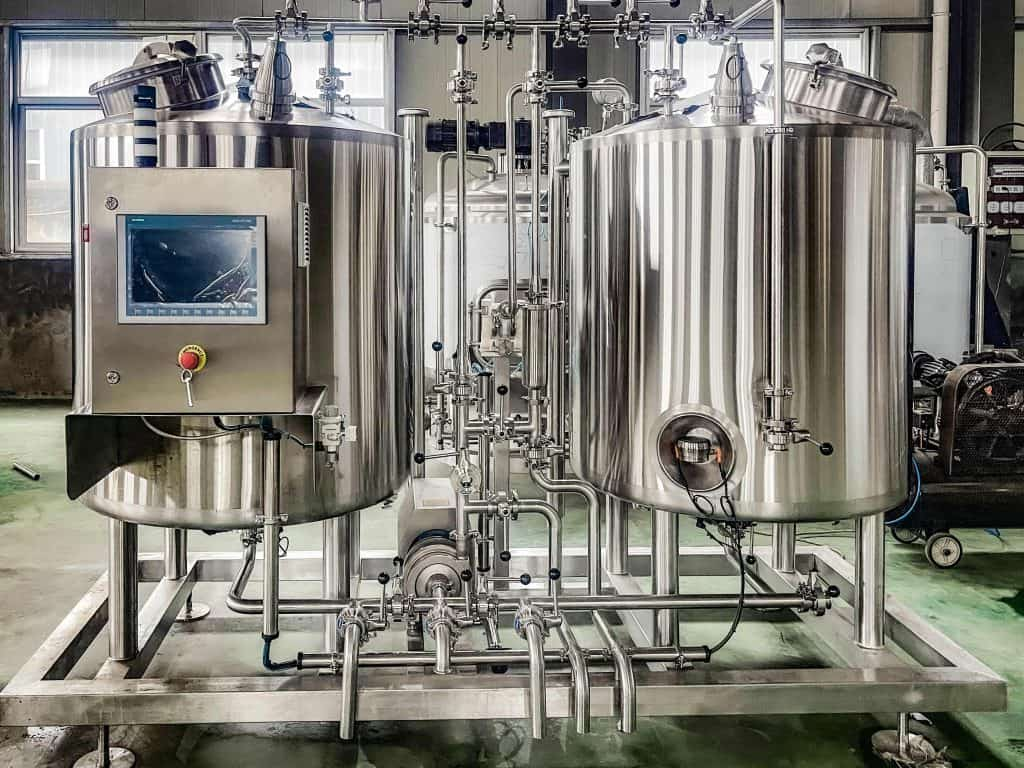Introduction
Brewing beer requires precision and the right equipment to ensure that every batch is consistent and up to the desired quality standards. From the brewing vessels to the bottling machinery, each piece of brew beer equipment plays a vital role in the brewing process.
Understanding the Brew Beer Process

Before we dive into the equipment, it’s important to understand the basic steps of the brewing process:
Mashing: The process where malted grains are soaked in hot water to extract sugars.
Boiling: The sugar-rich liquid, known as wort, is boiled with hops to add flavor and preservatives.
Fermentation: Yeast is added to the cooled wort to ferment the sugars into alcohol.
Maturation/Conditioning: The beer is allowed to mature and condition to refine its flavors.
Filtering: The beer may be filtered to remove remaining yeast and solids.
Packaging: The final product is bottled, canned, or kegged for distribution or sale.
Essential Brew Beer Equipment
Brewing Vessels
Mash Tun: A large vessel for mashing where the grains are mixed with water.
Lauter Tun: Often combined with the mash tun, it’s used for separating the liquid wort from the grain solids.
Boil Kettle: A large, well-insulated kettle designed to hold the wort during boiling.
Fermentation Equipment
Fermenters: These can be made of stainless steel and come in various sizes depending on your production needs.
Brite Tanks: Used for the maturation and conditioning of beer, often used for clear beers.
Cooling Systems
Heat Exchangers: Essential for rapidly cooling the boiled wort before fermentation.
Bottling and Packaging Equipment
Bottling Lines: Semi-automatic or automatic systems for filling, capping, and labeling bottles.
Canning Machines: For those who prefer cans to bottles, canning machines are necessary.
Keg Fillers: If you plan to distribute your beer on tap, kegs and fillers are a must.
Additional Equipment
Mill: For grinding the malted grains.
Hydrometer: To measure the specific gravity of the wort and monitor fermentation progress.
Thermometers: To monitor temperatures at various stages of the brewing process.
Tables and Data Analysis
Let’s take a closer look at some of the essential brew beer equipment with their typical specifications:
| Equipment Type | Capacity Range | Material | Key Features |
|---|---|---|---|
| Mash Tun | 50-500 liters | Stainless Steel | Insulated, Easy Clean |
| Boil Kettle | 100-1000 liters | Stainless Steel | High Boiling Capacity |
| Fermenters | 50-2000 liters | Stainless Steel | Temperature Control |
| Heat Exchanger | Varies | Stainless Steel | Efficient Cooling |
| Bottling Line | Semi-automatic | Stainless Steel | Speed and Consistency |
Designing Your Brewery Layout

The layout of your brewery is just as important as the equipment itself. Consider the workflow and ensure that the equipment is arranged in a logical order that supports the brewing process:
Receiving and Storage: For raw materials like grains and hops.
Mill and Mash Tun: For the mashing process.
Lauter Tun and Boil Kettle: Adjacent for easy transfer of wort.
Cooling Area: For the heat exchanger.
Fermentation Room: Controlled temperature and sanitation.
Brite Tanks: For maturation and conditioning.
Packaging Area: For bottling, canning, or kegging.
Conclusion
Building your brewery setup requires careful consideration of the brew beer equipment you’ll need. From the initial brewing vessels to the packaging machinery, each piece plays a crucial role in creating a high-quality product. By understanding the brewing process and selecting the right equipment, you can create a brewery that not only meets your production needs but also supports your creative vision.
FAQ
What is the most important piece of brew beer equipment?
- It depends on the scale and focus of your brewery, but typically, the fermenters are considered the heart of the operation.
Can I start with basic equipment and upgrade later?
- Yes, many brewers start with basic equipment and gradually upgrade as their business grows and their needs become more complex.
How do I know what size equipment to get?
- Consider your production goals and the estimated volume of beer you plan to produce. Start with equipment that matches your current needs with room for growth.
Are there used brew beer equipment options available?
- Yes, purchasing used equipment can be a cost-effective way to start a brewery, but ensure you thoroughly inspect and test any used equipment before buying.
What about the legal requirements for brew beer equipment?
- Regulations vary by location, so be sure to check local, state, and federal laws regarding brewing and selling alcohol.

